The computer engineering specialty (= concentration) focuses on the design and programming of
embedded systems, which are common in mobile phones, coffee machines, cars and pacemakers. In
addition to learning the computer base, the electrotechnical basics (such as the core
components of the embedded system) is added to the intensive course.
Computer engineering covers a huge subject area. Such as how the future system will run, how
to adapt different components and parts in software and hardware. It has been extended from the
original programming to a wider range of applications.
Study plan (partly changes, please find latest information in " Modulhandbuch Informatik / Informatik im Praxisverbund"):
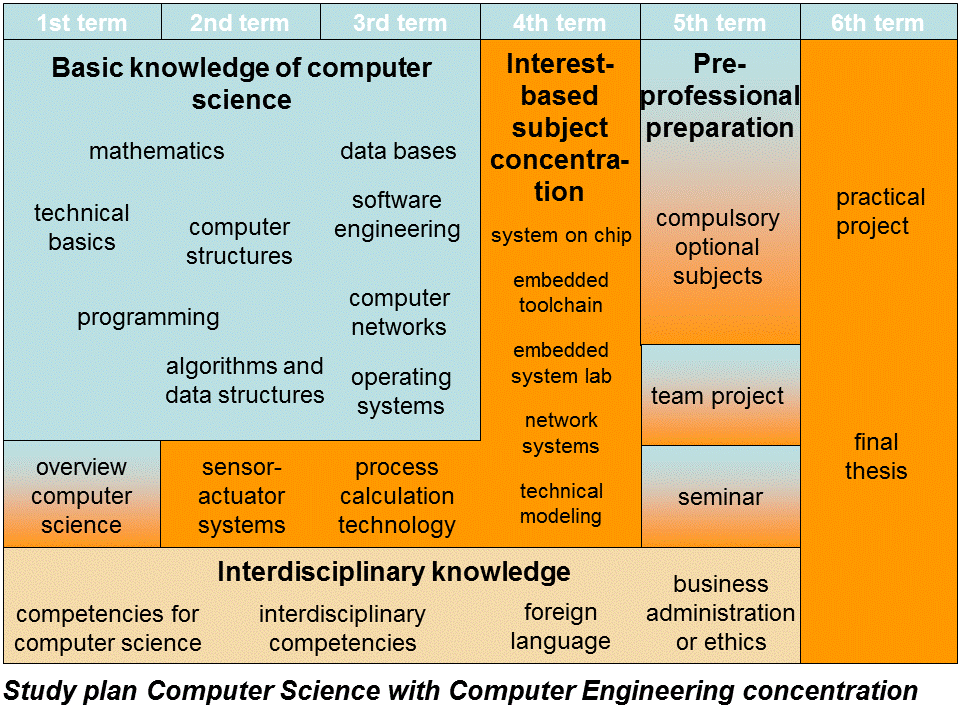
Graduates of this course will be able to work in the following industries:
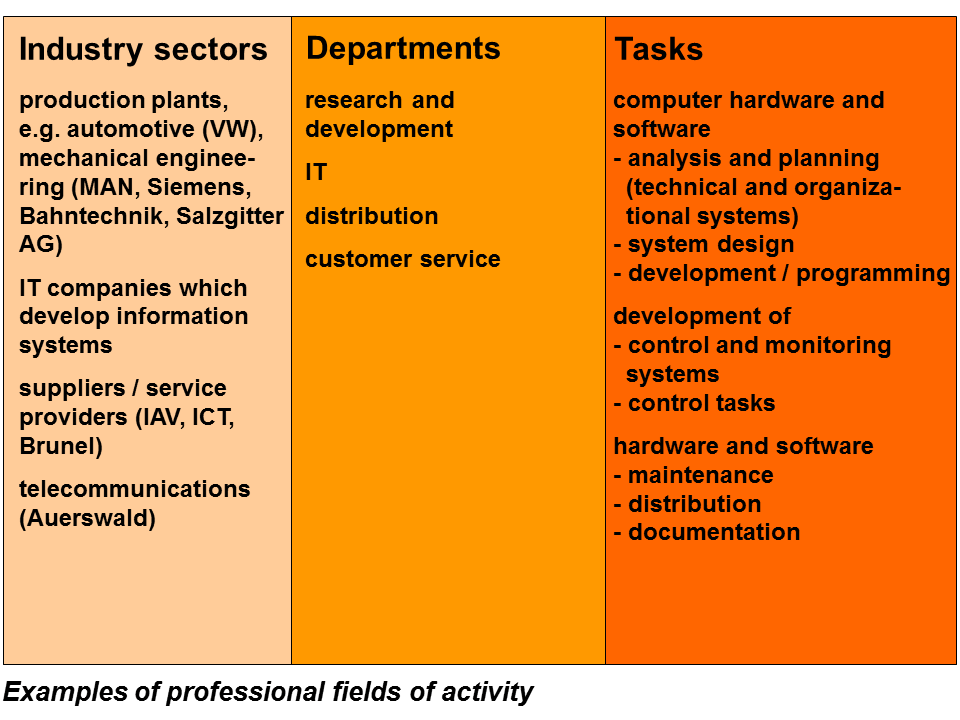
Prof. Dr.-Ing. Detlef Justen
Am Exer 2
Phone: +49 5331 939 32130
Email:
d.justen@ostfalia.de
Web:
www.ostfalia.de/i/ce
Please write your questions in German or English language.
System engineering focuses on software, hardware, complex system planning, analysis and simulation. Without it, most projects do not work properly. It has a dominant position in the modernization of large projects. You will learn to design, model and test abstract systems in this course.
Study plan (partly changes, please find latest information in " Modulhandbuch Informatik / Informatik im Praxisverbund"):
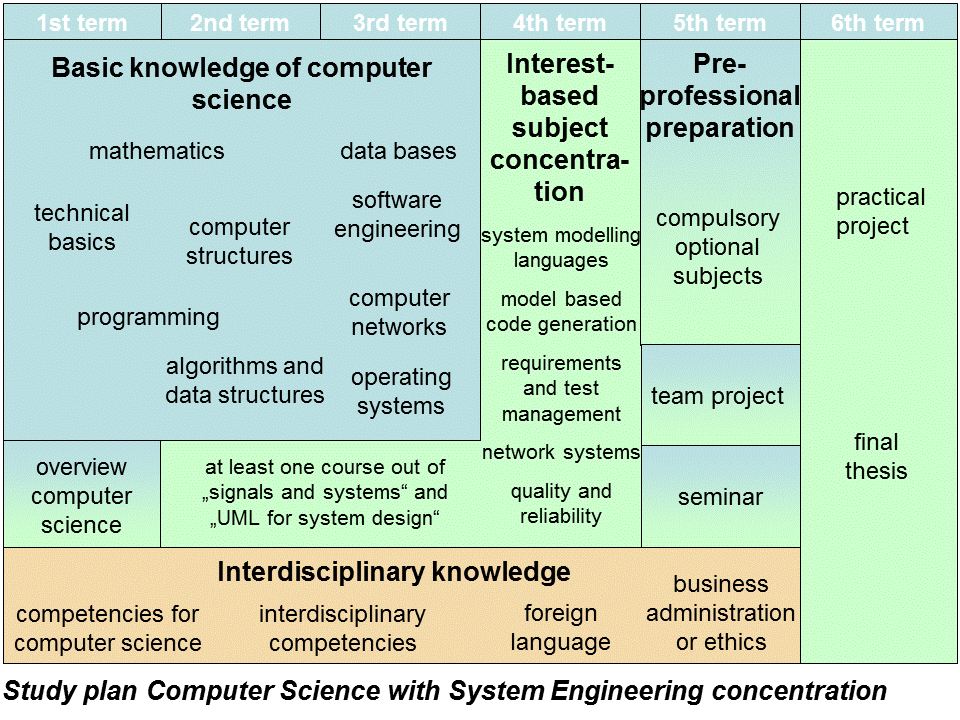
Systems engineering is the beginning of a large-scale development plan. It occupies 20% of the cost of a large project, such as the development of new cars.
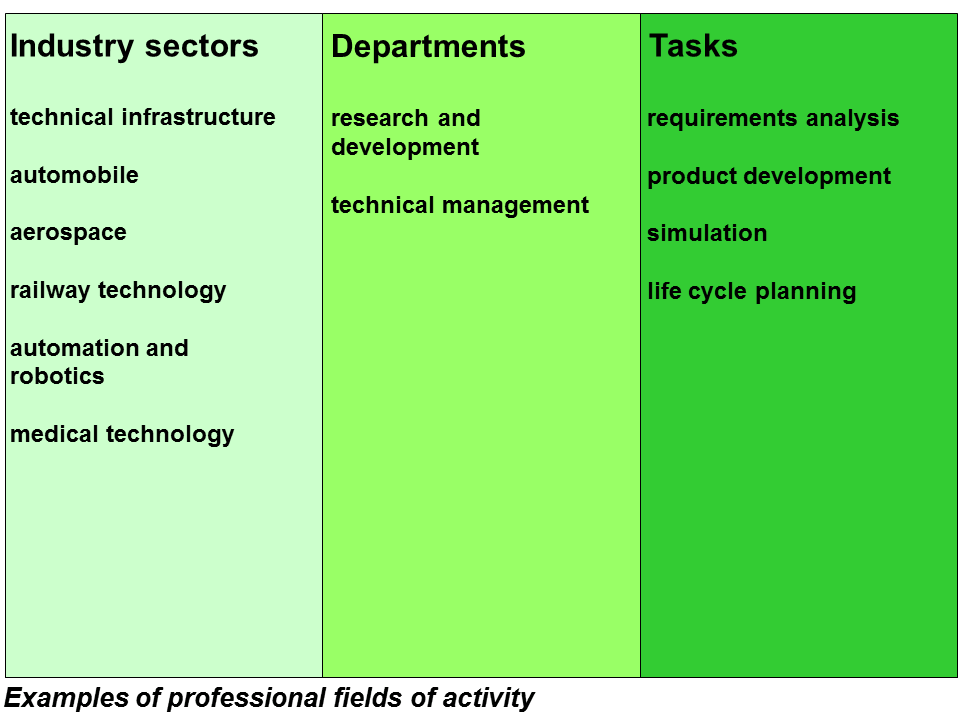
Prof. Dr.-Ing. Reinhard Gerndt
Am Exer 2
Phone: +49 5331 939 32120
Email:
r.gerndt@ostfalia.de
Web:
www.ostfalia.de/i/sy
Please write your questions in German or English language.
Information engineering includes all the questions and tasks in the process of obtaining information. In large and small enterprises, science and technology and management, a large amount of data to collect and store in electronic format has become a routine work. The greater value of information engineering is getting information and knowledge from the data. This course includes data collection, storage and management, information acquisition analysis methods and knowledge of reuse.
Study plan (partly changes, please find latest information in " Modulhandbuch Informatik / Informatik im Praxisverbund"):
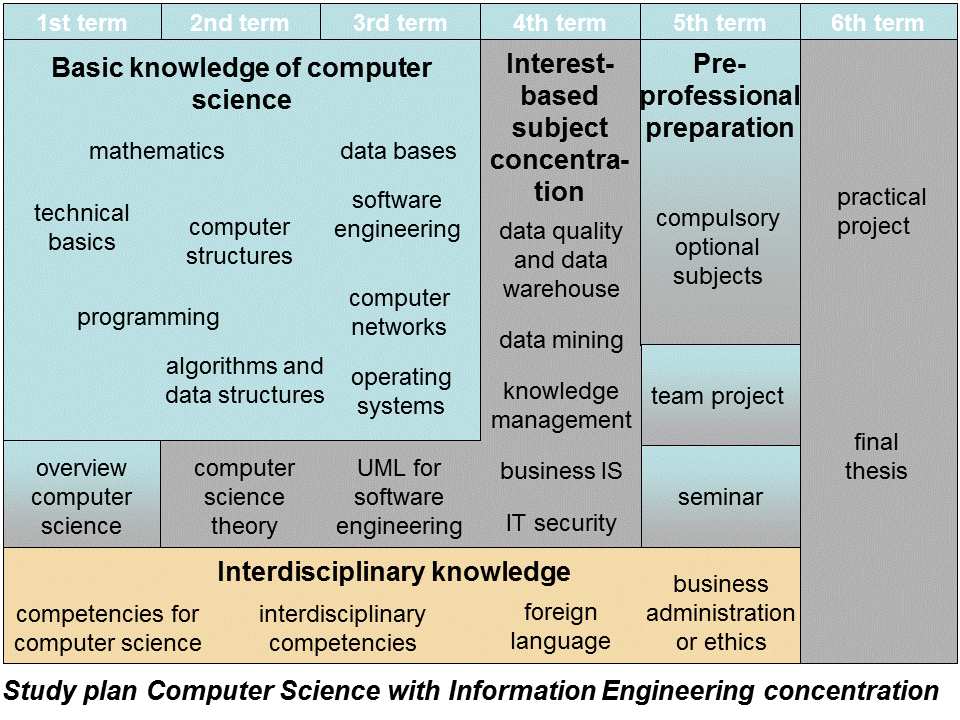
Graduates of this course will be able to work in the following industries:
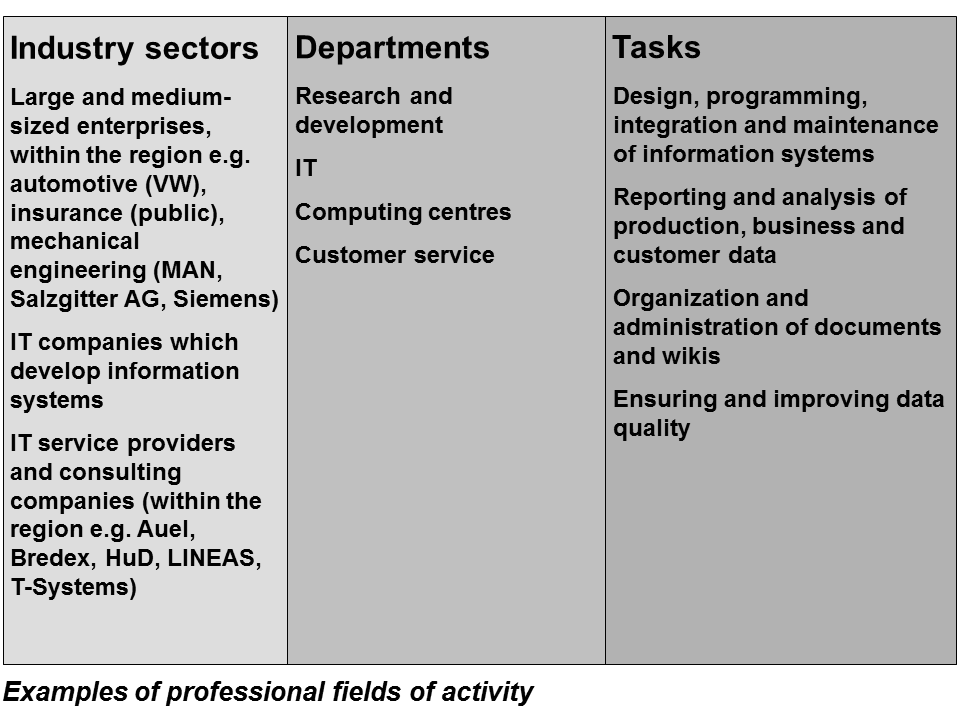
Prof. Dr. Frank Klawonn
Am Exer 2
Phone: +49 5331 939 31100
Email:
f.klawonn@ostfalia.de
Web:
www.ostfalia.de/i/ie
Please write your questions in German or English language.
Software engineering includes the following specialties:
Study plan (partly changes, please find latest information in " Modulhandbuch Informatik / Informatik im Praxisverbund"):
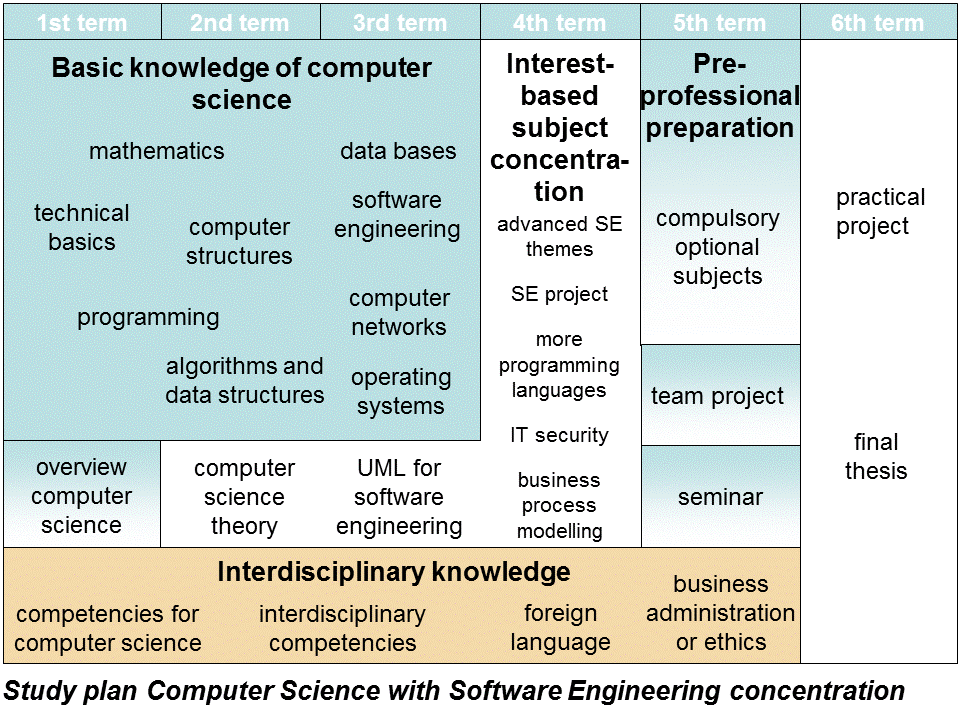
In the German-wide survey for students, Google is currently the most popular employment company, followed by SAP, IBM and Siemens, BMW and Apple are also among the top ten most popular companies.
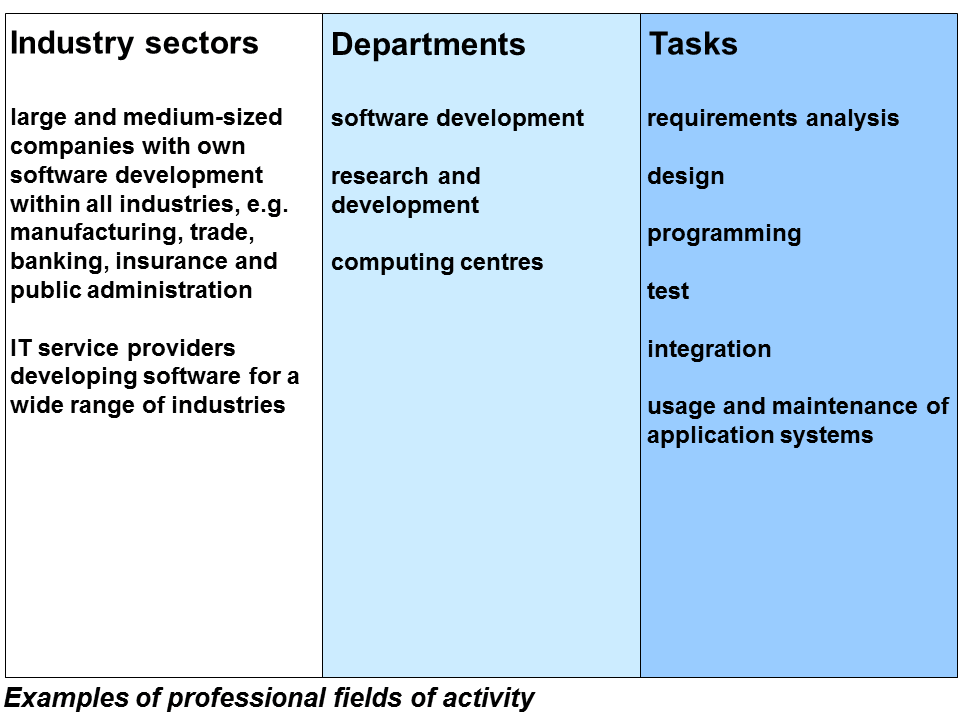
Prof. Dr. Bernd Müller
Am Exer 2
Phone: +49 5331 939 31100
Email:
bernd.mueller@ostfalia.de
Web:
www.ostfalia.de/i/se
Please write your questions in German or English language.
Multimedia applications are more and more common in the modern information society. Media such as text, language, immobile images, and moving images have been separated in the past and are now often combined in use. This is done in order to provide more information better. In addition to the traditional media such as newspapers, television and films, Internet media are also gradually on the rise. Potential future workspaces for media information students are designing multimedia applications, design and implementation.
Study plan (partly changes, please find latest information in " Modulhandbuch Informatik / Informatik im Praxisverbund"):
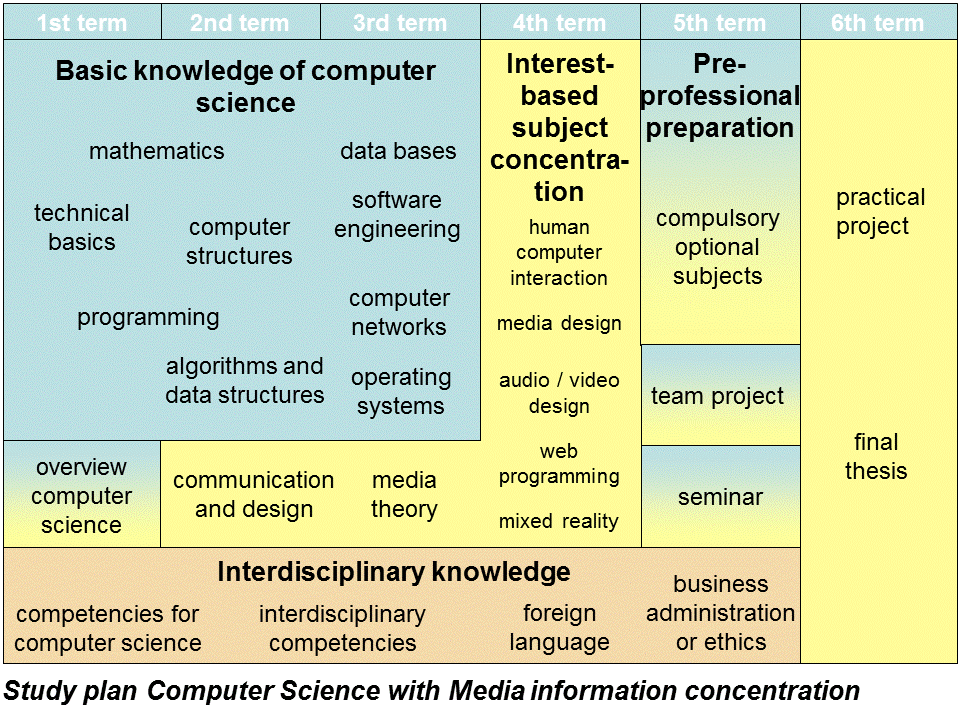
Media and communication markets are an important foundation for the information society. In this industry, new jobs are emerging.
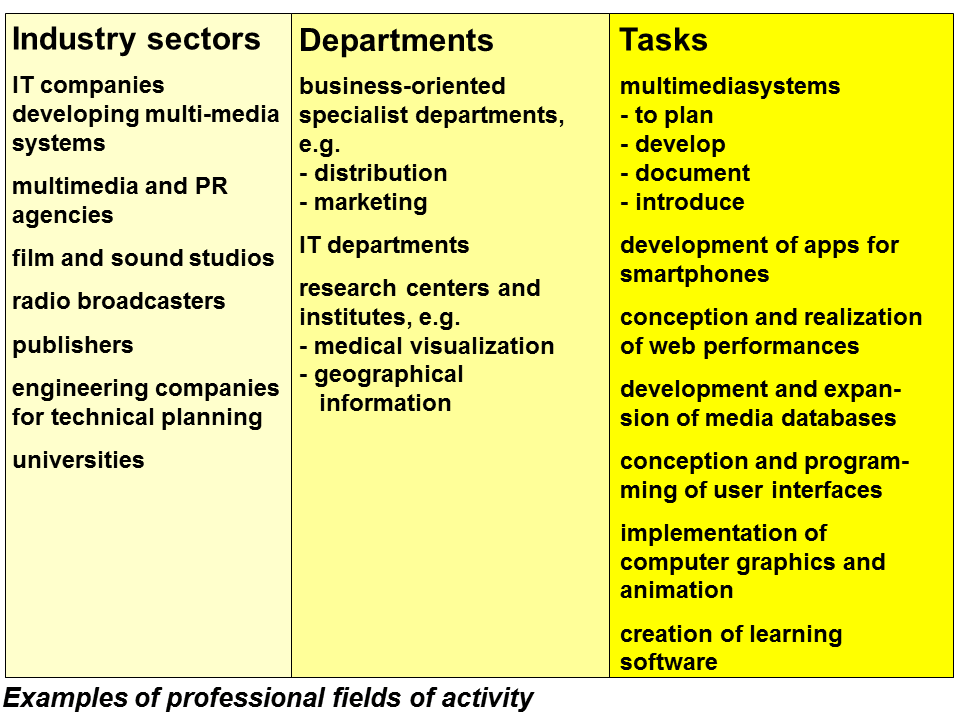
Prof. Dr.-Ing. Nils Jensen
Am Exer 2
Phone: +49 5331 939 31550
Email:
n.jensen@ostfalia.de
Web:
www.ostfalia.de/i/mi
Please write your questions in German or English language.